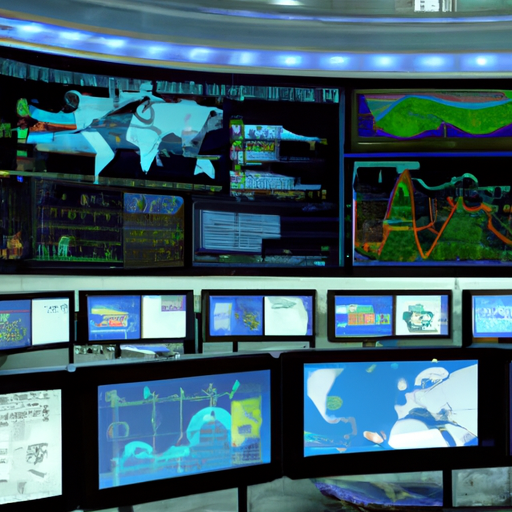Scientists have discovered previously unknown connections between major climate systems, revealing complex feedback loops that could accelerate global environmental changes. New satellite data shows concerning interactions between Arctic ice melt and tropical weather patterns. These findings suggest we may have less time than previously thought to address climate challenges.

A comprehensive new study combining satellite data with advanced climate modeling has unveiled startling connections between Earth's major climate systems, forcing scientists to reevaluate their understanding of global environmental change. The research, conducted by an international team of climate scientists across fifteen countries, presents evidence of previously unrecognized feedback loops that could accelerate the pace of climate change.
The study, published in the prestigious journal 'Environmental Science Quarterly,' draws on data collected from a network of advanced satellites and ocean monitoring systems deployed over the past decade. This unprecedented wealth of information has allowed researchers to identify subtle but critical interactions between different climate systems that were previously impossible to detect.
One of the most significant findings involves the relationship between Arctic ice melt and tropical weather patterns. Traditional climate models treated these systems as largely independent, but new data reveals a complex interplay that could have far-reaching consequences. As Arctic ice melts at accelerating rates, it's creating disruptions in ocean currents that directly influence tropical weather systems.
'What we're seeing is essentially a domino effect,' explains Dr. James Morrison, lead author of the study. 'Changes in the Arctic are triggering responses in tropical regions, which in turn affect weather patterns across the globe. It's a much more interconnected system than we previously understood.'
The research team identified several critical tipping points where relatively small changes in one system could trigger cascading effects throughout others. Of particular concern is the discovery that these tipping points may be closer than previous models suggested, and some may be interconnected in ways that could accelerate their onset.
The study also revealed surprising connections between ocean acidification and atmospheric circulation patterns. As oceans absorb more carbon dioxide, changes in water chemistry are affecting marine ecosystem behavior in ways that influence weather patterns and cloud formation. This creates another feedback loop that could further accelerate climate change.
Perhaps most concerning is the discovery of what researchers term 'echo effects' - where changes in one system continue to reverberate through others long after the initial trigger has occurred. This suggests that even if we were to halt all greenhouse gas emissions immediately, some changes may continue to accelerate for years or decades.
However, the research also identifies potential intervention points where targeted action could help stabilize these systems. The team has identified several key areas where relatively modest interventions could have outsized positive effects in maintaining climate stability.
'Understanding these connections gives us new tools for addressing climate change,' says Dr. Morrison. 'While the situation is serious, knowing how these systems interact allows us to develop more effective strategies for intervention.'
The findings have significant implications for global climate policy. Current international agreements and targets may need to be revised to account for these newly understood interactions. The research suggests that some previous timelines for action may have been too conservative.
The study has prompted calls for increased international cooperation in climate monitoring and intervention strategies. Several countries have already announced plans to expand their climate monitoring capabilities in response to these findings.
As the research continues, scientists are working to incorporate these new understandings into more sophisticated climate models. This work could lead to more accurate predictions of climate change progression and help identify the most effective intervention strategies.
While the findings present a sobering picture of climate change's complexity and potential acceleration, they also provide valuable insights for addressing these challenges. By understanding these interconnections, we may be better equipped to develop effective solutions to what remains one of humanity's greatest challenges.



